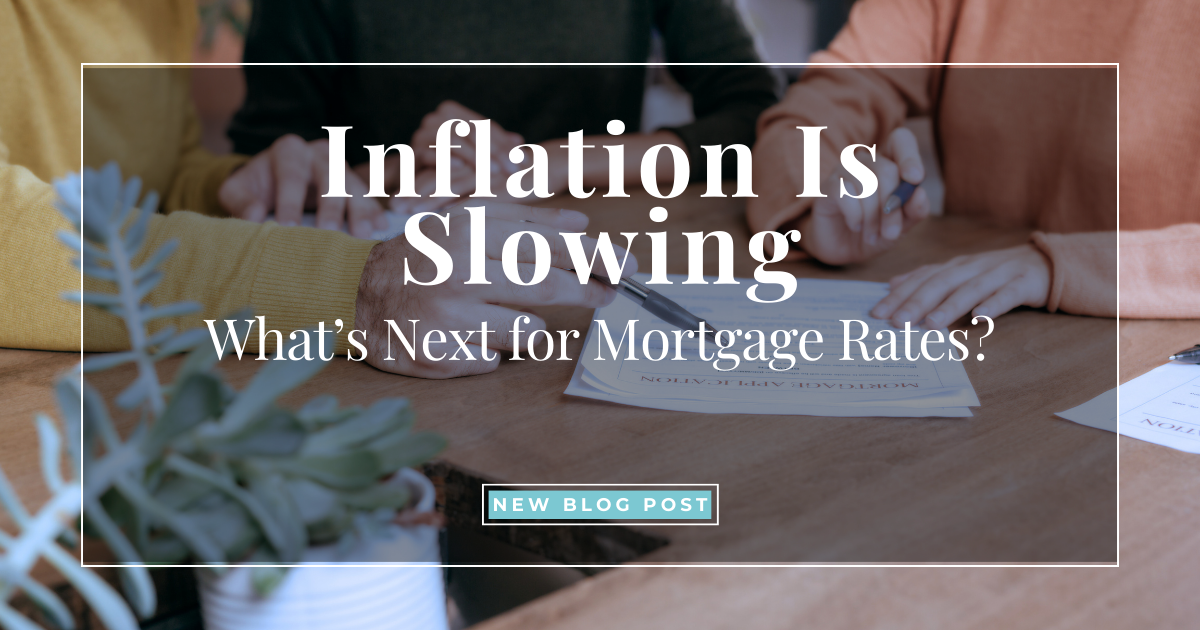.png)
With inflation and the housing market dominating economic headlines, it’s important to understand how they go hand-in-hand. When the rate of inflation is too high, the Federal Reserve takes action by raising the key interest rate. As a result, borrowing money becomes more expensive—and interest rates on things like car loans, credit cards, and mortgages go up. This does usually have the effect of driving inflation down, but it can also impact different markets, industries, and even the entire economy.
Right now, the Fed is hoping to direct the U.S. to a “soft landing,” in which inflation and growth slow, but the economy as a whole avoids a recession. Recent data supports that we’re headed in that direction—but industries like tech, finance, and especially the housing market have felt the force of higher interest rates.
Here are the details.
Inflation is at its lowest point since 2021.
Inflation is hovering right around 3%, down from 4% in May, and an ultra-high peak of 9.1% in June of 2022. The current rate is the lowest it’s been since March 2021, but it’s still higher than the Federal Reserve’s target rate of 2%. The latest numbers released on August 10th showed that inflation rose two-tenths of one percent from June to July (mostly due to rising rent and gas prices), but core inflation is actually down—and that’s significant.
What’s core inflation? When the prices of everything started rising, did it seem like the prices of groceries and utility bills jumped the most? If you said yes, you’re right—and it wasn’t your imagination. That’s because historically, the prices of food and energy are volatile, meaning that they are sensitive to changes in the global economy, environment, and more, and they can rise or fall dramatically in a short amount of time. Core inflation measures the price inflation of goods and services excluding these items because of their volatility. That way, the national inflation rate won’t be skewed dramatically by an outlier, and we can get a more accurate picture of inflation overall.
What does that mean for the housing market and mortgage rates?
Analysts believe the Fed will stop raising rates.
According to AP News, economists believe that the Fed will pause interest rate hikes if inflation trends downward. The next Federal Open Market Committee (FOMC) meeting is in late September, so whether or not rates rise again will depend on what inflation does between now and then.
What’s next for mortgage rates?
According to Forbes, mortgage rates are likely to stay between 6 and 6.9% through the end of 2023. Even if the Fed stops raising the key interest rate, that won’t necessarily equate to a drop or even a freeze in mortgage rates. This is because mortgage rates don’t just track the federal funds rate. They also rely on the yield on the 10-year Treasury note as well as investor expectations and other factors.
Instead of waiting for mortgage rates to drop, it can often be a better choice to make moves now and refinance later when rates drop. Here’s why:
- Real estate values always appreciate in the long run. So even if values rise and fall in the short term, you’ll face higher prices down the road if you wait.
- If you move now, you’ll start building equity. When you do that, you benefit from rising home values instead of struggling with prices that feel unattainable.
- Your competition is waiting for rates to drop, too. As rates decrease, buyer activity will increase. This will mean more buyers competing for the already limited inventory; leading to over-ask offers, waived contingencies, and a lesser chance of securing a contract.
Ready to make the market work for you?
If you’re tired of fighting the real estate market and you’re ready to make current conditions work for you, get in touch. Our expert team in Columbia, MO has the experience and knowledge you need to achieve your goals—no matter what mortgage rates are doing.

.png)



